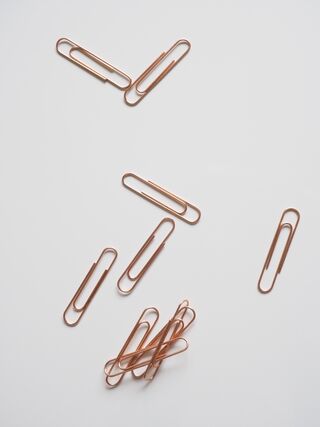Sleep
To Stay Mentally Sharp, Prioritize Sleep
It helps people of all ages.
Posted September 28, 2020

In modern society, the importance of sleep is dramatically under-appreciated. A common view is that sleep ought to be one of the first things we forego in order to make time for other responsibilities. In fact, making time for sleep can lead to the perception that we are lazy or have inappropriate priorities. Given this view of sleep, it is no wonder that the majority of us don’t get enough sleep, suffering from chronic sleep restriction.
Night after night, we get an hour or two less sleep than what our bodies and minds need. But while this loss of sleep may seem innocuous, when we forego sleep, we deprive ourselves of opportunities for creative thinking, for optimizing our memories, and for regulating our emotions.
Sleep and Creativity
How many uses can you think of for a paperclip? This is an example of a question that requires creative thought, or divergent thinking (e.g., Abbasi, 2011). You probably generated clipping papers together, but did you also consider using a paperclip as a bookmark, sewing needle, or carving tool?
Extensive research has shown that individuals who are well-rested are more likely to come up with long lists of possible uses for everyday objects. Those of us who haven’t been getting enough high-quality sleep are more likely to narrow in on a few obvious uses and to have difficulty pushing past those and broadening our mindset.
As we age, we tend to become less creative thinkers; in fact, children often are the most creative among us (Gopnik et al., 2017). But prioritizing sleep can help us to counter this trajectory toward reduced creativity.

Sleep is thought to boost creativity because it is a time when the brain tries out new connections (e.g., Cai et al., 2009). Often, these connections are meaningless. We can probably all think of dreams that were downright bizarre, with dining room chairs morphing into rocket ships and people and places from different phases of life being brought together in implausible ways. But sometimes, the brain stumbles onto something as it tries out these new associations.
We may suddenly make a connection between the way we solved a problem at a prior job and the way we can solve a problem we’re currently facing. The literature is filled with anecdotes of famous discoveries that were sparked during a nap or after a night’s rest, and scientific research increasingly supports the role of sleep in creative, flexible thinking.
It’s good to keep in mind that sleep is sometimes the critical element needed when we’re struggling to solve a problem, whether it be interpersonal or mathematical.
Sleep and Memory
Sleep is a time when the brain can shift from processing all the information we’re bombarded with during our waking day to storing the relevant information for our later use (e.g., Walker & Stickgold, 2006). In fact, the biochemical environment of sleep creates an optimal environment for memory storage. The sleeping brain can store information in memory to a degree that is not possible while we are awake. Complaints about memory and forgetfulness are among some of the most common frustrations of aging, making it all the more important to prioritize sleep as we age. When we deprive ourselves of sleep, we forego an opportunity to solidify information in memory.
High quality sleep doesn’t just arbitrarily store information in memory. Instead, sleep seems to help us to forget mundane information, like what we wore today or what we ate for breakfast while holding onto important information, like the due date for a recently assigned job. Extensive research has shown that holding onto unnecessary details can be harmful to an efficient memory system; often, we want to prune the details in order to be able to see the big picture and to retain what is important. But we also don’t want to prune so aggressively that we are left without enough scaffolding for our memories. Sleep seems to help our memories achieve that level of balance needed: Critical details are retained, but the mundane features are abstracted away, enabling us to see the forest for the trees.
Sleep and Emotion Regulation
We’ve probably all had the experience — and seen it in our children or significant others — of a problem seeming overwhelming in the evening. We’re filled with anxiety or frustration over something. And then, in the morning, after a good night’s sleep, we have a better perspective on the problem, and it no longer seems insurmountable.

Some of this effect of sleep relates to what we mentioned earlier: Sleep can help us to make connections with prior situations, to remember that we’ve gotten through similar things in the past, or to make a connection that a strategy that worked for us previously may be helpful in the current moment. But sleep also seems to tame the emotional intensity of our memories and experiences. So while we may be overwhelmed with negative emotions about something we experienced during our waking day, after sleep, we’re more likely to think back on that event without all that intense emotion (e.g., Walker and van der Helm, 2009). Scientists have talked about it as sleep bit-by-bit stripping away the “emotional tone” of the memory.
As we’ve discussed previously, aging is associated with a tendency to be able to keep events in perspective and to keep emotions in check (see our prior blog post on managing negative emotions). Prioritizing sleep can help to ensure that these mental-health benefits of an aging mind can be revealed.
Getting High-Quality Sleep: Avoiding Common Pitfalls
Hopefully, you’re now convinced that the right strategy isn’t always to stay up later to get something accomplished. Often, the more efficient way to complete your to-do list is to sleep and then to get the work done, in a shorter amount of time and to higher standards, once you’re rested.

But even if we’re trying to get a good night’s sleep, there can be some common pitfalls to good sleep. A big one — especially during the current pandemic — is not enough exposure to natural light during the day and too much screen time in the evening. Extensive research has shown that the blue light in electronic devices mimics sunlight and can trick our body into thinking that it is still daytime. But even with blue-light filters on, exposure to electronic devices before sleep can still delay sleep onset. Common advice is to put away all electronic devices about an hour before bedtime.
Another common pitfall is not taking time to clear your mind before sleep. A racing mind is not conducive to sleep. Consider creating a bedtime routine that is relaxing and predictable. It might include listening to a favorite song, looking at photographs that leave you with happy, calming, thoughts, or engaging in mindfulness meditation. If needed, you might write your to-do list for the morning, and then give yourself the permission to let today’s stresses and tomorrow’s responsibilities slip from your mind in the half-hour before bed.

Other common pitfalls surround substances we consume or activities we engage in during the day that can affect our sleep quality. Caffeine is an obvious example. We all know that caffeine helps us to stay awake, but many of us underestimate our sensitivity to caffeine and don’t appreciate the long length of time over which it stays in our system. It can also be easy to overlook the impact of the caffeine found in a variety of foods (e.g. chocolate) and beverages (e.g. some herbal teas). Exercise too late in the day can also interfere with high-quality sleep, especially if we are not used to exercising late in the day. Alcohol consumption can also interfere with sleep quality. This may come as a surprise because alcohol helps us to fall asleep. But alcohol disrupts our ability to stay asleep and disrupts the quality of our sleep in the second half of the night.
The Importance of Good Sleep Hygiene
To avoid sleep-sabotaging habits, it is useful to embrace the notion of “sleep hygiene.” Just like healthy teeth require daily habits built around routines of brushing and flossing, so does healthy sleep require daily habits to be formed. These habits include:
- Prioritize sleep and say “no” to societal pressures that convince us we should stay up later, work longer, and sleep less. Keep in mind that the average amount of sleep needed for an adult is eight hours. That means that half of us need more sleep than that!
- Establish a consistent bedtime and wake time, and stick to it as best we can. As anyone who has been jet-lagged can attest, our bodies have an internal clock that helps us know when to fall asleep and when to wake up. The more consistent we can keep our bedtimes and wake times, the better this internal clock can work for us.
- Keep a sleep log when our sleep quality is not what we want it to be. These logs can help us to figure out what we might be doing to sabotage our sleep — by recording when/what we’ve eaten and drank, exercised, done to relax, when we’ve gone to bed and woken up, and how rested we felt upon awakening, we can be a detective and figure out the daily patterns that give rise to our best-quality sleep.
- Seek help when these strategies prove inefficient. As we age, there is a greater likelihood of developing obstructive sleep apnea or other conditions that can interfere with sleep. There are treatments for many of these conditions, often without requiring medication, and diagnostic tools available to determine if sleep is poor for reasons that might be fixable. When in doubt, it’s wise to mention sleep concerns to a physician.
In summary, while we can’t control many aspects of how we age, we can control how much time we set aside each day for sleep. By prioritizing sleep, we can set ourselves up for better cognitive and mental health outcomes.
References
Abbasi, K. (2011). A riot of divergent thinking. Journal of the Royal Society of Medicine, 104(10), 391. https://doi.org/10.1258/jrsm.2011.11k038
Cai, D. J., Mednick, S. A., Harrison, E. M., Kanady, J. C., & Mednick, S. C. (2009). REM, not incubation, improves creativity by priming associative networks. Proceedings of the National Academy of Sciences of the United States of America, 106(25), 10130–10134. https://doi.org/10.1073/pnas.0900271106
Gopnik, A., O'Grady, S., Lucas, C. G., Griffiths, T. L., Wente, A., Bridgers, S., Aboody, R., Fung, H., & Dahl, R. E. (2017). Changes in cognitive flexibility and hypothesis search across human life history from childhood to adolescence to adulthood. Proceedings of the National Academy of Sciences of the United States of America, 114(30), 7892–7899. https://doi.org/10.1073/pnas.1700811114
Walker, M. P., & Stickgold, R. (2006). Sleep, memory, and plasticity. Annu. Rev. Psychol., 57, 139-166.
Walker, M. P., & van der Helm, E. (2009). Overnight therapy? The role of sleep in emotional brain processing. Psychological bulletin, 135(5), 731–748. https://doi.org/10.1037/a0016570




